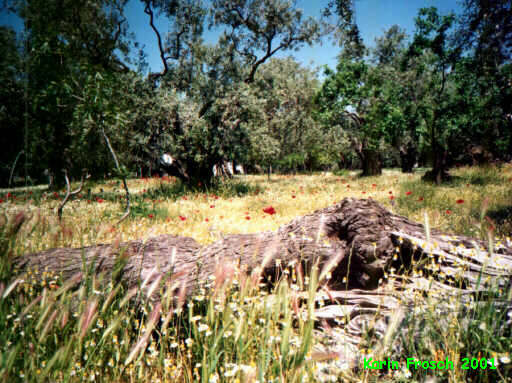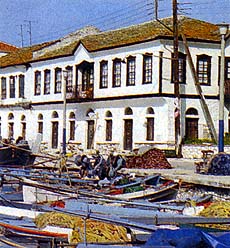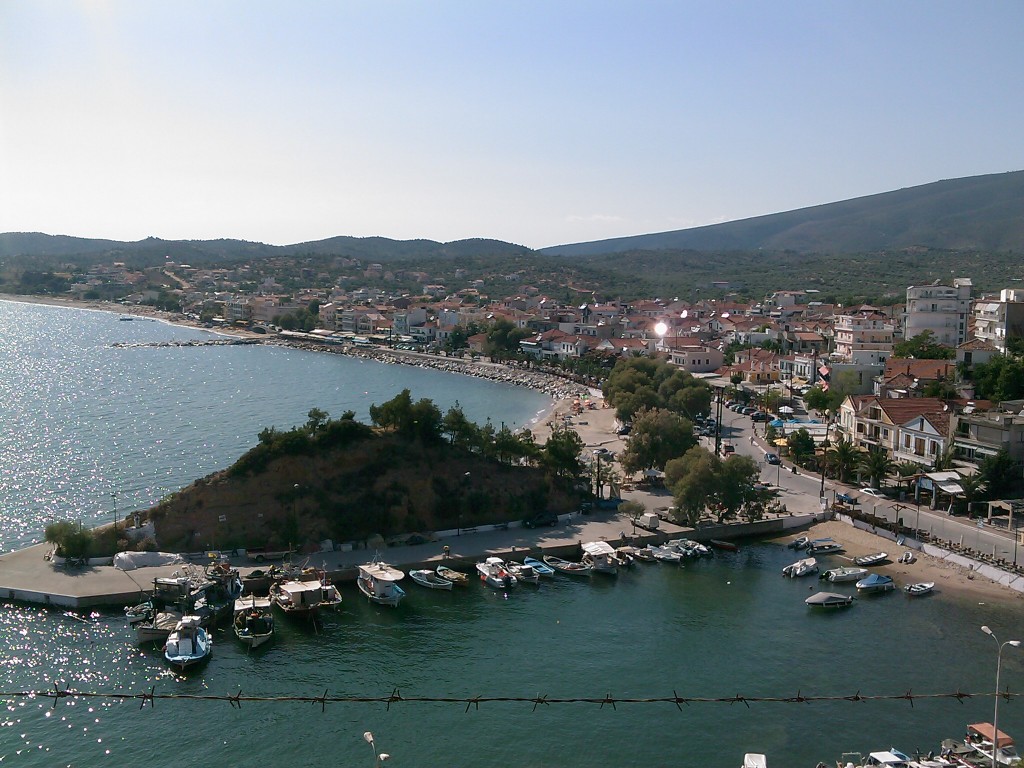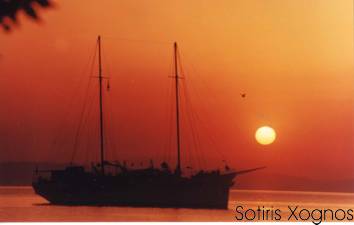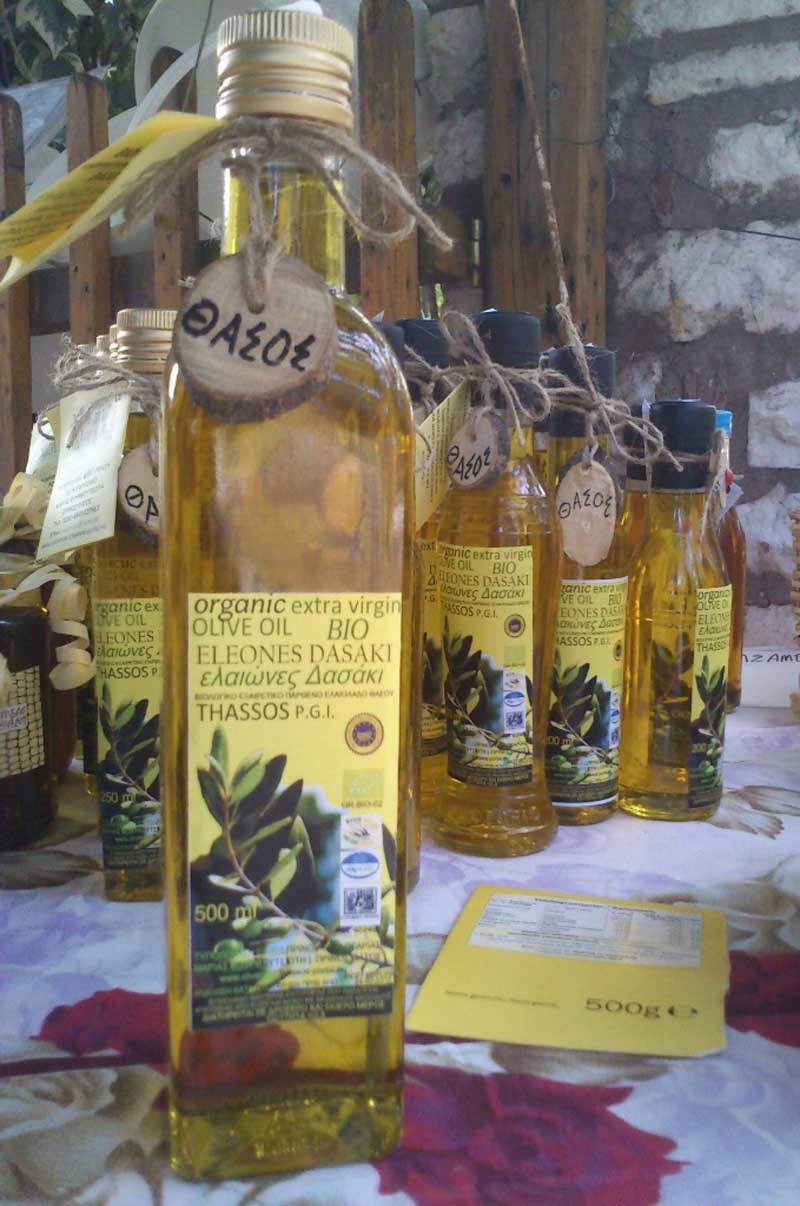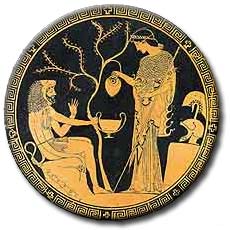While Europa, hidden in Crete, was enjoying Zeus's favours, Aginor called
his sons and his grandson Thassos. He ordered them to look everywhere for
Europa and not to return unless they found her.
Phoenix set out towards the
south. Cilix went north until he reached afertile land where he made
himself king: since then it has been known as Kilikia.
After wandering through the Greek islands, Cadmus continued his search in
the islands of Greece. He visited the oracle of Apollo at Delphi and
consulted Pythia the priestess. Although he followed her advice, he was
unable to find Europa. After passing through Phokis he came to Beotia,
where he built an acropolis, Kadmia, and below it a town with broad
avenues, which he named Thebes.
Thassos, Aginor's grandson
searched for Europe in various places until he came to this island.
Captivated by its marvellous climate and lush vegetation and unable to
return without Europa, he gave up his quest. He and his retinue settled on
the island, which has borne his name ever since.
Herodotos, the greatest historian of antiquity, is categorical on this
matter. He says the island is now called after that Phoenician Thassos. (Herodotos,
Histories, 6.47.1). Because of its clear air and cool summer breezes, the
ancient poets gave the island other names, such as Aeria or Leria. This
name was also mentioned in the Delphic oracle received by the leader of
the Parian colonists, Telesicles (680 BC): Don't tell the Parians,
Telesicles, that I have ordered you to build on the island of Aeria a city
that will be visible from all around. (Byz. 3n Thasos, Metneke Editions).
It was also called Aethria, meaning clear blue sky, and Chrysia, a
reference to the lustrous gleam of the gold (chrysos) once mined there.
Religion
Religious belief of
the Thasians, as of all the ancient Greeks, was centered on the twelve
gods of Olympus. However, the island's patron was Heracles, a mystical god
who may have had his origins not in the Greek halfgod Heracles (Hercules),
but in the Phoenician god Melkarth. Special honors were reserved for the
god of the sea Poseidon and the goddess of the hunt Artemis.
Dionysus, god of wine, together with his Satyrs, Silenoi and Maenads, were
worshiped in orgiastic rites. The mysteries of Demeter, brought to Thassos
by the Parian priestess Cleobia, were celebrated. There were also special
feasts of Pythian Apollo, whose snowy white temple sparkled on the
acropolis above the city.
|
